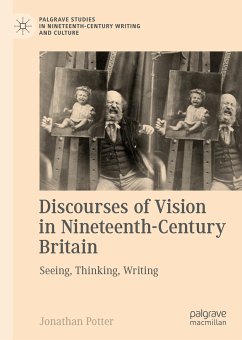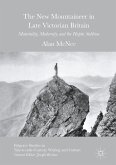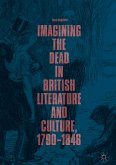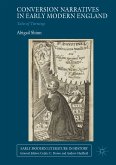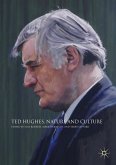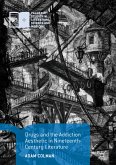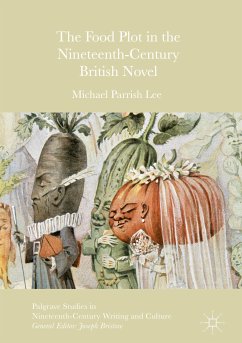Dieser Download kann aus rechtlichen Gründen nur mit Rechnungsadresse in A, B, BG, CY, CZ, D, DK, EW, E, FIN, F, GR, HR, H, IRL, I, LT, L, LR, M, NL, PL, P, R, S, SLO, SK ausgeliefert werden.
"Jonathan Potter's study, which explores how visual technologies shaped vision and its metaphors in nineteenth-century Britain, offers a 'pluralistic understanding of polydynamic 'experiences'' through its persuasive critique of the paradigm of 'singular individuality' ... . He finds that the composition and reading of narrative fiction in the nineteenth century provided an 'ordering process' by which individuals could make sense of a society that was both increasingly fragmented and more extensively networked ... ." (Laura Ludtke, BAVS Newsletter, Vol. 21 (2), 2021)
"Potter's study understandably retains hallmarks of many a first book. But its grounding in philosophy, visual theory, psychology, cognitive theory, archival research, and literature remains impressive. It also validates further research into the history of technology, as we enter a new decade of clicks and hybrid clouds." (Linda M. Shires, Victorian Studies, Vol. 62 (3), 2020)
"Potter's book offers valuable insights through its extensive exploration of the relations between mind, perception, and the technological imagination." (Patrick Armstrong, The British Society for Literature and Science, April 14, 2020)
"Victorian studies has sorely lacked a phenomenology of visual experience, and Potter's biggest achievement is to have provided not just one, but several of these across the different chapters. ... I recommend this book for all scholars of the nineteenth century, no matter what their discipline. ... Discourses of Vision is destined to become an oft-cited text because it fills a gap in the phenomenology of visual experience, and because of Potter's commendable and original attention to the particularities and nuances of Victorian visual technologies." (Owen Clayton, Journal of Victorian Culture, Vol. 20 (1-3), February 28, 2020)
"Potter's study is a richly researched and attentive investigation into the range of perceptual experience preserved for us in nineteenth-century British culture. ... The discoveries of Potter's study, particularly in its attention to the interplay between specific technologies and the texts that carry forward the experiences of interacting with and thinking about these technologies, will be of interest to many scholars in history and literature." (Elizabeth Hope Chang, Nineteenth-Century Prose, Vol. 46 (2), 2019)
"In Discourses of Vision in Nineteenth-Century Britain: Seeing, Thinking, Writing, Jonathan Potter's ambitious remit is how visual technologies shaped not only ways of seeing and thinking, but also the shape of literature itself. This is a smart, fully packed book ... ." (SEL Studies in English Literature 1500-1900, Vol. 59 (4), 2019)
"The scope of this project is vast, and Potter's ability to synthesise its diversity of ideas into a coherent and compelling narrative is impressive. His bibliography is extensive and will prove of equal value to historians of visual media and those of Victorian culture. Most significantly, the book's discursive, pluralistic drive has prepared a fertile base from which similar-minded enquiries into the interactions between visual technology and thought can flourish - in studies of nineteenth-century Britain and beyond." (Thomas Haynes, Early Popular Visual Culture, October 4, 2019)

